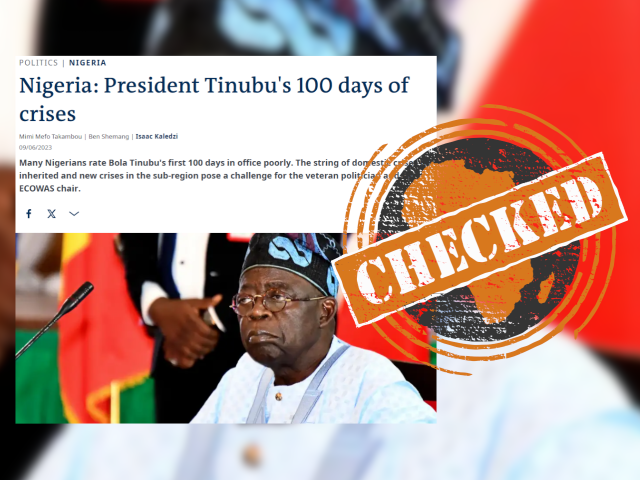This article is more than 11 years old
South Africa's 2013 budget, announced by Finance Minister Pravin Gordhan, includes a range of new infrastructure spending plans, a pledge not to raise income tax, but an admission that fuel levies will go up.
See the full text of the speech here.
We fact-checked some of the claims and counter-claims made by the government and the opposition. See how we think they did.
-
Access to information
This in response to a South African citizen, Willie du Preez, who, the minister said, had expressed concern about whether infrastructure investment is actually taking place. The minister said du Preez suggested: “As a citizen one should be able to obtain from the Treasury website at the end of each financial year what amount was spent on what infrastructure.” And so you can, the minister responded. “You can already obtain that information from the Treasury website, not just every year, but every month!”
Our verdict: the minister is wrong
Africa Check took up the minister's challenge. We went to the Treasury website's section on the Infrastructure Development Improvement Programme and opted for Monitoring and Reporting. It refers to a reporting model that has provinces reporting to national treasury and indicates this is quarterly and only sometimes on a monthly basis.
It would be more accurate to say the information is available quarterly. But even then it is misleading is to suggest the way the information is presented addresses the citizen’s concern. It is difficult to find the information in the first place. And when you do this is what you see.
With respect to the minister and the officials in the team, the way this is presented is not aimed at ordinary citizens at all.
-
Infrastructure spending
Our verdict: Unproven unless you know different
Infrastructure spending cuts across many different departments and is tough to pull together. We have asked the DA to explain their 22% figure, which they have so far been unable to do. While government admits that not all that has been promised has been spent, for that reason we say unproven … unless you have evidence.
-
Monthly income
The minister’s claim: “59 per cent of all households hav(e) a monthly income of less than R2 300”
Our verdict: Unproven unless you know different
Illustrating the difficulty of getting information from government websites, almost a week after the budget we are still to verify the minister’s statement. The government statistics agency StatsSA produces a figure for average monthly household income of more than R8000. However, this is the ‘median’ average, not the ‘mean’. (It is skewed by the high earnings of a minority). Also unproven for now.
-
School leavers
Our verdict: A reasonable estimate - but the data is too poor to be certain
According to education expert Nic Spaull, around one million young people do leave the school system every year, if you include those who matriculate, those who go into further education and training, and those who drop out early. However, these numbers are estimates. According to this research around 356,000 students matriculated in 2011, the latest year for which such data is available. Until there is better data on those in training and dropping out, the exact numbers leaving school each year will not be known for sure.
-
Urbanisation
Our verdict: The minister is correct
According to the 2011 Census, the percentage of the population that is urban is 63 percent, marginally higher in fact than the minister said. The population of some municipalities did indeed grow by over 50 percent over the past decade.
Conclusion
There is no single conclusion on the budget, save to say that getting the information needed to check the claims that government and opposition make is not easy. Some of their claims appear solid. Others less so. But often the information is just not available to check what either side are saying. This is a pity. But with your help, we will keep at it.




Add new comment